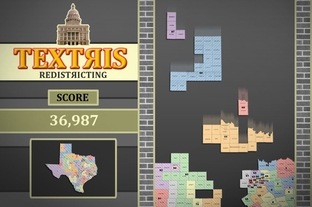Uncharted, Still

Start here: The judges in charge of the redistricting case in Texas haven't rejected the maps proposed by the state and agreed to by some but not all of the plaintiffs. They simply observed that no deal has been made to satisfy everyone and told everyone to keep talking and get ready for a hearing next week.
Attorney General Greg Abbott's squad offered up maps they contend would add or bolster six minority opportunity districts to the House map drawn by the Legislature, would add two MODs to the congressional map, and would make the only contested district in the state Senate maps marginally more Democratic than what the Legislature drew.
Before that had even been filed with the court in San Antonio, the judges issued an order telling the lawyers to get ready for the judges to draw new maps of their own, to be ready for hearings next week, and to get their briefs filed. They also told them to keep negotiating — a suggestion they reiterated in a related case in open court this week.
Put it another way: The judges haven't said anything that would prevent them from looking at or even accepting the proposed settlement next week.
Some pressure points: It would be tight, but if the court has a map by the end of next week, it's still possible to hold an April election. Not on April 3 — that's gone, at least for legislative and congressional elections — but maybe on April 17.
One choice for the players is between their desire to hold a unified primary with all of the elections on the same day and their hope that Texans will get to vote before the presidential race is settled by voters in other states.
Another is the dislike for the lines in the current proposal and the risk that the judges will draw maps that are worse. That's a funny thing: everyone in the room feels that tension, but for different reasons. Some of them like the proposal and fear the judges. Some of them hate the proposal and think the judges will rescue them.
Waiting to negotiate has its risks, since everyone else has already made deals — pinky swears, as one participant put it — that restrict other deals. For instance, a parley over HD-144 in Harris County — Republican Ken Legler's district — locked up when the state told the Democrats they could redraw, but only at the expense of a neighboring district represented by Democrat Carol Alvarado of Houston. Everything else was locked up by other deals and promises. And pinky swears.
The Mexican American Legislative Caucus, whose lawyer, Jose Garza, spoke for all of the plaintiffs when this went to the U.S. Supreme Court last month, may be the most significant holdout. As this is being written (on Thursday night), there haven't been significant talks between that group and the state in five days.
To this point, MALC and the members of the Texas Latino Redistricting Task Force have been on the same page. But it's worth noting that they have different kinds of clients. MALC represents legislators — Democratic legislators. MALDEF and the others represent Latinos. In districts where minority interests are resolved but political interests are at stake, the groups don't necessarily have the same position.

